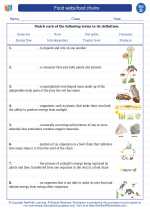Food webs/food chains -> kingdom
Kingdoms in Biology
In biology, a kingdom is a taxonomic rank that is composed of smaller groups called phyla (or divisions, in plants). The current system of classification includes five kingdoms: Monera (bacteria), Protista (unicellular eukaryotes), Fungi, Plantae, and Animalia. Each kingdom represents a broad category that includes organisms with similar characteristics.
Monera Kingdom
The Monera kingdom includes unicellular organisms without a nucleus, such as bacteria. They are often found in diverse environments, from the depths of the ocean to the human digestive system.
Protista Kingdom
The Protista kingdom is composed of diverse unicellular eukaryotic organisms, including protozoa, algae, and slime molds. These organisms often live in aquatic environments and play essential roles in food chains and ecosystems.
Fungi Kingdom
Fungi are multicellular, heterotrophic organisms that obtain nutrients by decomposing organic matter. This kingdom includes organisms like mushrooms, yeasts, and molds. Fungi play crucial roles in nutrient cycling and have both beneficial and harmful effects on humans and other organisms.
Plantae Kingdom
The Plantae kingdom consists of multicellular, autotrophic organisms capable of photosynthesis. This kingdom encompasses a wide range of plants, from tiny mosses to towering trees. Plants are essential for oxygen production, food webs, and the maintenance of terrestrial ecosystems.
Animalia Kingdom
The Animalia kingdom includes multicellular, heterotrophic organisms that exhibit a wide range of characteristics and behaviors. This kingdom encompasses everything from microscopic invertebrates to large mammals, showcasing remarkable biodiversity and adaptations to various environments.
Study Guide
- Describe the key characteristics of the Monera kingdom.
- Give examples of organisms in the Protista kingdom and their ecological roles.
- Explain the nutritional mode of the Fungi kingdom and its significance in ecosystems.
- Discuss the importance of the Plantae kingdom in the context of oxygen production and food webs.
- Provide examples of organisms in the Animalia kingdom and their diverse adaptations.
Understanding the concept of kingdoms in biology is essential for comprehending the diversity of life on Earth and the relationships between different organisms and ecosystems.
[Kingdom] Related Worksheets and Study Guides:
.◂Science Worksheets and Study Guides Fourth Grade. Food webs/food chains

 Activity Lesson
Activity Lesson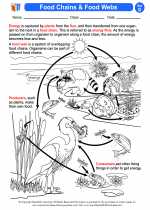
 Worksheet/Answer key
Worksheet/Answer key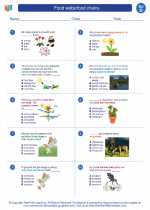
 Worksheet/Answer key
Worksheet/Answer key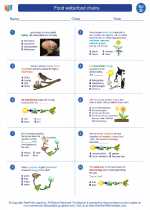
 Worksheet/Answer key
Worksheet/Answer key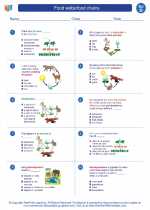
 Worksheet/Answer key
Worksheet/Answer key
 Vocabulary/Answer key
Vocabulary/Answer key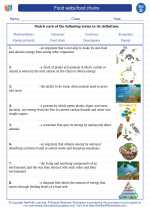
 Vocabulary/Answer key
Vocabulary/Answer key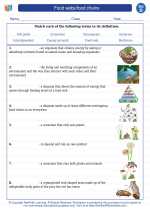
 Vocabulary/Answer key
Vocabulary/Answer key